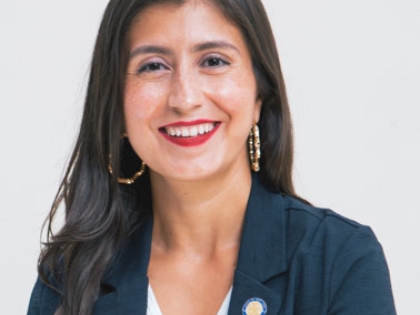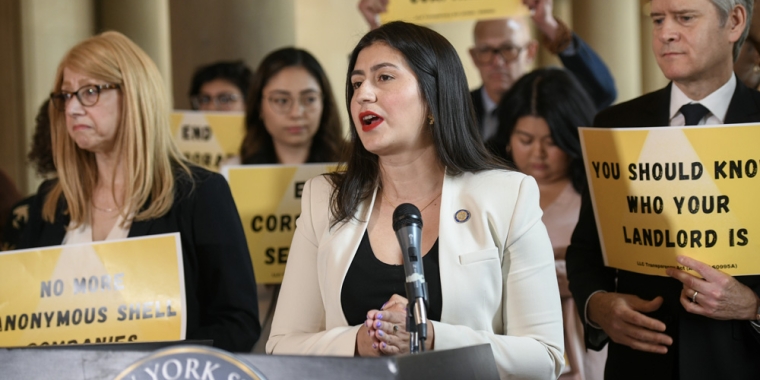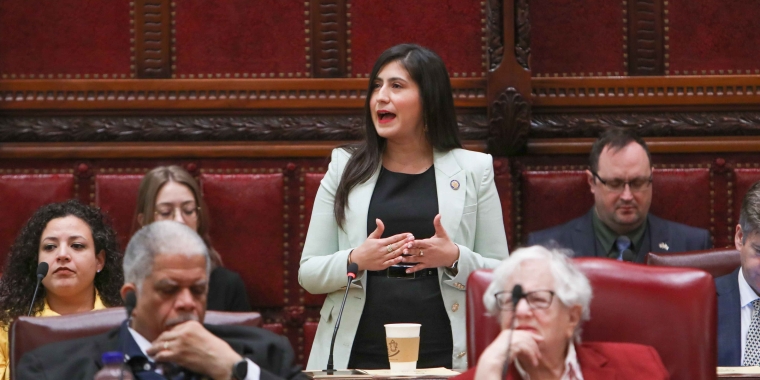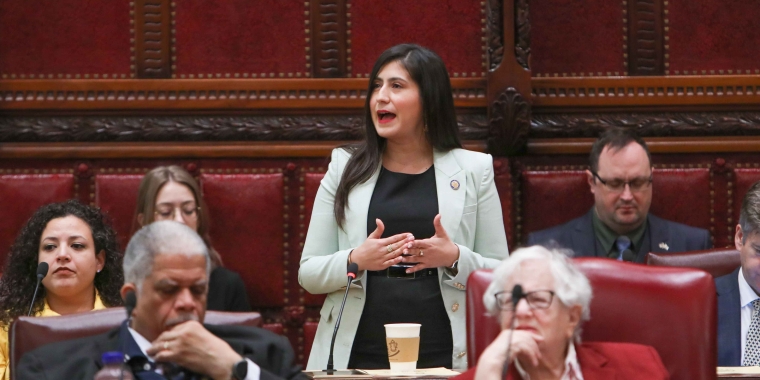
Queens Sen. Jessica Ramos is on a mission to bring universal childcare to New York
ALBANY — Millions of women left the workforce during the COVID crisis, many doing so due to a lack of reliable, affordable childcare.
State Sen. Jessica Ramos (D-Queens), a mother of two, said while the pandemic has compounded many problems faced by working moms, the dearth of childcare options in New York has reinforced gender and racial disparities across the state.
That’s why one of her top priorities for the upcoming legislative session will be fighting to pass a bill establishing universal childcare in the Empire State.
“We want to make sure that there’s a safe place that children can be dropped off at any time no questions asked,” Ramos told the Daily News. “There should be someone within a close vicinity that is certified by the state to do this work and is able to help a parent and relieve them of their duties.”
Ramos, since joining the Senate in 2019, has previously sponsored versions of the bill that would have only applied the program to the five boroughs.
She now says the pandemic has reinforced the need for universal childcare across New York since so many women were forced out of the workforce over the past year and a half.
According to the National Women’s Law Center, more than 2.3 million women left the workforce nationwide between February 2020 and February 2021.
The sky-high cost of child care is an economic burden for most families, but especially for low-income earners.
According to the Economic Policy Institute, child care costs for infants and toddlers in the state average out to $15,394 annually, or $1,283 per month.
Ramos envisions the state providing free childcare for those making minimum wage and then instituting a sliding scale for higher earners.
Much like her previous city-specific “NYCUnder3″ legislation, Ramos said the statewide effort would rely upon a payroll tax impacting only the state’s highest-grossing businesses. According to the plan, 95% of businesses would not be impacted.
While final language is still being worked out, the tax on top-earning businesses would not be higher than 1%, Ramos said.
“I think it’s fair that we ask our biggest businesses to be able to provide this safety net for all workers in our state,” she said. “It would be historic for us to be able to keep kids safe in this way.”
The bill would also create grants, tax incentives and scholarships as well as professional and workforce development to increase capacity and retain workers at existing childcare centers.
Additionally, money going out to providers would be contingent upon the expectation that staff will be compensated a minimum of $45,000 annually.
“The other component is wage parity for the providers, making sure that their hard work and the value of their work is properly compensated,” Ramos said.
In addition to tackling childcare, Ramos said she’s working on bills pegging the minimum wage to inflation and potentially expanding oversight of companies using artificial intelligence, such as Amazon, to track workers’ productivity.


